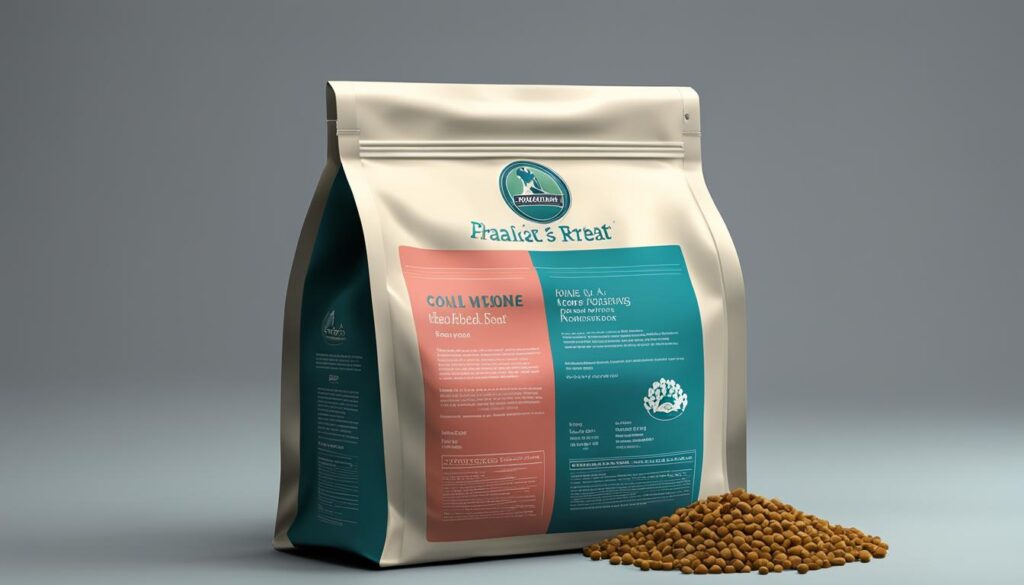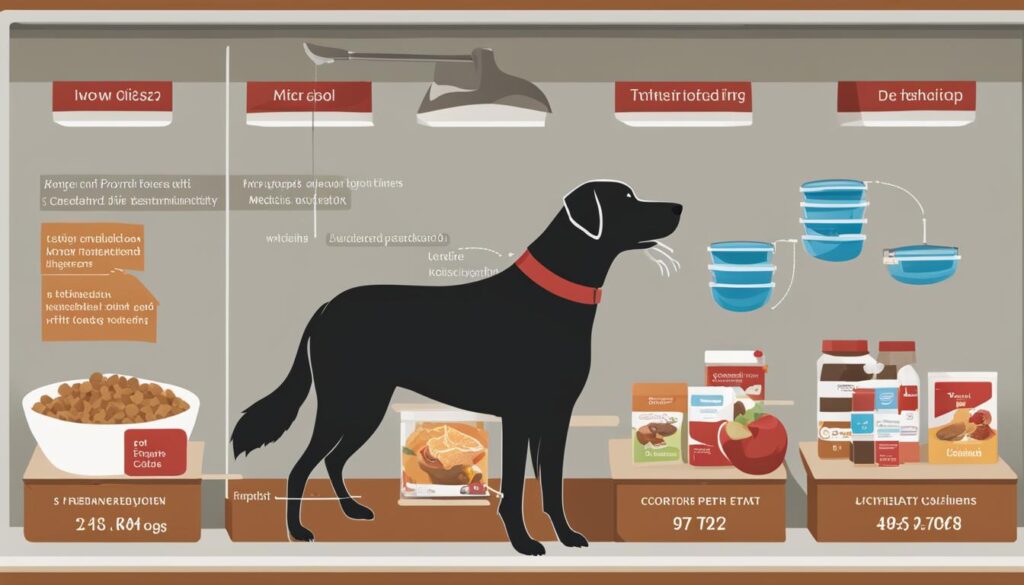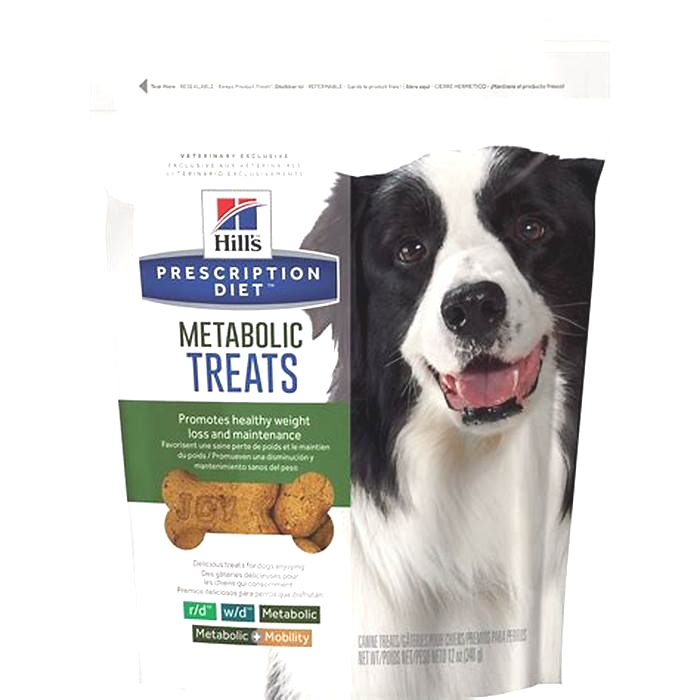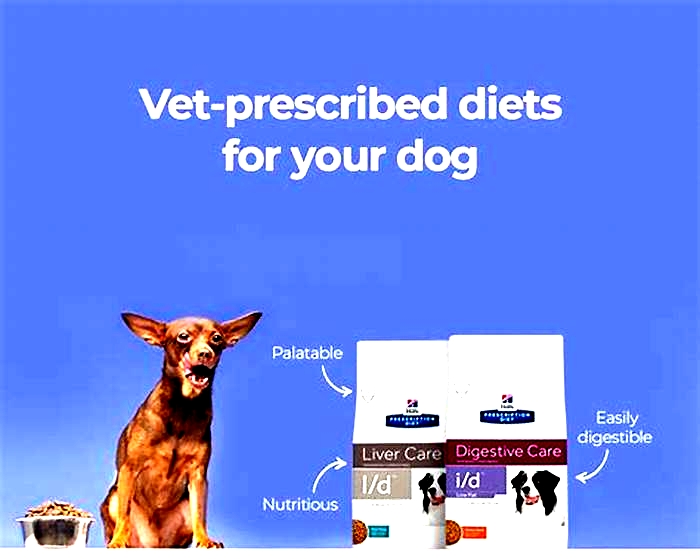The Science of Healing A Closer Look at Prescription Dog Diets

A Closer Look at 'Anti-inflammatory' Diets
Just about every health guru on the planet, as well as many respected science organizations, has their advice regarding purported inflammatory and anti-inflammatory foods and their purported role in the prevention or development of a myriad of diseases. But is this advice based upon a clear understanding or a premature assumption of the biological reactions which are occurring with various foods after they have been digested?
Since this issue is far too expansive and thus virtually impossible to isolate all of the incredulous comments regarding anti-inflammatory diet plans, I am going to use a group who many would normally consider as being on top of the food chain so to speak regarding sound nutrition science advice. Most individuals would agree that the following group should retain a keen eye for data interpretation and the ability to draw warranted conclusions vs the tidal wave of unjustified rubbish in the uneducated culture at large. So, I will use the Department of Nutrition, Harvard T.H. Chan School of Public Health as my example here.
On November 7, 2018 in the Harvard Health Publishing Trusted advice for a healthier life, which is rather an ironic comment as you will see, published Foods that fight inflammation. In this article they state the following:
Doctors are learning that one of the best ways to reduce inflammation lies not in the medicine cabinet, but in the refrigerator (they are not referring to the ice). By following an anti-inflammatory diet, you can fight off inflammation for good.
Further, in the same newsletter it states:
Choose the right anti-inflammatory foods, and you may be able to reduce your risk of illness. Consistently pick the wrong ones, and you could accelerate the inflammatory disease process.
The article goes on to identify the common culprits of inflammation, as:
- refined carbohydrates, such as white bread and pastries
- French friesand other fried foods
- sodaand other sugar-sweetened beverages
- red meat(burgers, steaks) and processed meat (hot dogs, sausage)
- margarine, shortening, and lard
And anti-inflammatory foods as:
- tomatoes
- olive oil
- green leafy vegetables, such as spinach, kale, and collards
- nutslike almonds and walnuts
- fatty fishlike salmon, mackerel, tuna, and sardines
- fruits such asstrawberries, blueberries, cherries, and oranges
Now lets look at the evidence. After the ingestion of various types of purported inflammatory foods, such as refined carbohydrates, French fries, sodas, etc. as mentioned above, certain molecules (or biomarkers) known to be associated with the inflammatory process increase in concentration in the blood after the foods are consumed. Now, the false assumption is that this temporary increase of biomarkers normally associated with inflammation is a negative issue and not a normal, temporary physiological response after the ingestion of certain foods-especially high glycemic index foods. Now, are these known inflammatory biomarkers which are being released an indication of inflammation or an indication of another, yet unidentified role these biomarkers may have unrelated to inflammation?
Marc Donath M.D. is Professor and Head of the Clinic for Endocrinology, Diabetes and Metabolism at the University Hospital of Basel, Switzerland. His research focuses on the mechanisms and therapy of decreased insulin production in type 2 diabetes. He has shown that IL-6, one of the biomarkers of inflammation widely used to condemn certain foods as inflammatory, as the ones mentioned above, regulates another molecule production called GLP-1. So, is this inflammatory biomarker, IL-6, being mischaracterized as a negative reaction to the food being ingested, or just a separate normal biological role for this molecule?
GLP-1, which is stimulated by the inflammatory biomarker, is responsible for stimulating the B-cells of the pancreas to secrete more insulin, all of which is dependent upon blood sugar levels after a meal. GLP-1 also suppresses the hormone glucagon, which, if not supressed, would stimulate the release of even more sugar into the blood. Thus, this reaction is a good thing and not a bad thing. The inflammatory biomarker initiates the initial necessary steps to maintain normal blood sugar levels after the ingestion of various high glycemic index foods. GLP-1 also induces satiety in the hypothalamus, which, if you pay attention to this signal from your brain, it will help prevent overindulgence and obesity. Again, so far this is all normal physiology, initially stimulated by the inflammatory biomarker. The inflammatory biomarker is simply an indication of your bodys normal physiological response to blood sugar levels and based upon Dr. Donaths research, is a necessary step of normal physiological reactions to maintain normal blood sugar homeostasis. So, what does all this mean in simplified functional terms?
If you consume any food which may stimulate significant increases in blood sugar levels, which would be labeled as an inflammatory food, such as potato products, refined carbohydrates, sodas, etc. what is going to happen? Your blood sugar will rise significantly. Then, the normal physiological response of the body is to secrete the insulin to control the level of blood sugar and keep it within normal ranges. Insulin will do this by stimulating the liver and muscle tissue to take up the excessive sugar. The two sites can either store it if possible as glycogen, or, in the livers case, biosynthesize fatty acids from the excess sugar and store it in fat tissue. This is all perfectly normal metabolism of excessive calories, and the biomarkers for inflammation which have received so much negative attention, are simply assisting in this process by stimulating the necessary initial steps of it. Increased blood sugar stimulates the inflammatory biomarker, which then stimulates the GLP-1 molecule, which then stimulates the pancreatic beta cells to secrete insulin. This is not chronic inflammation, but a temporary secretion of a biomarker for inflammation, which obviously has other biological roles, to illicit the normal metabolic functions to control blood sugar levels.
Here is an email I sent to Dr. Donath on February 2, 2019 regarding this issue:
"It appears, the short-term inflammatory marker response is essentially a normal physiological response to increased blood sugar levels or excess calories, and the need to direct the appropriate hormonal responses to metabolize the sugars or excess calories. Is this correct or incorrect? Would you consider the current consumer and media reaction to the inflammatory marker response to food, similar to the misguided response to normal free radical production? In other words, under many conditions, such as post-exercise and during various immune responses, the increase free radical production is a normal metabolic response which acts as a signaling mechanism for various biological adaptations which need to take place, such as signaling the muscle tissue to adapt to the exercise load. Suppressing this free radical response hinders the adaptation. So, even though free radicals are often associated with negative biological activity by most consumers,during many physiological situations,their responseis simply asignaling mechanisms for further normal metabolic reactions in many situations. Is this also true for the markers of inflammation postprandial?"
His response on 2/10/19:
Overall, I agree with your thinking.
To support all of this, in March 2017, Dr. Donath and his colleagues published their research findings in Nature Immunology, Postprandial macrophage-derived IL-1B stimulates insulin, and both synergistically promote glucose disposal and inflammation. In the discussion section of this paper it states, both insulin and IL-1B (biomarker for inflammation) regulated whole body glucose disposal by promoting glucose uptake in muscle and fat and fueled the immune system by stimulating the uptake of glucose into the immune-cell compartment. Also, their final comments were, collectively, our findings have shown that IL-1B, a master regulator of inflammation, and insulin, a key hormone in glucose metabolism, promoted each other. Both had potent effects on glucose homeostasis and on the activity of the immune system.
On January 16, 2017, Science Daily, covered the same research of Dr. Donath in their review Every meal triggers inflammation. In this review they make the following points:
- When we eat, we do not just take in nutrients -- we also consume a significant quantity of bacteria. The body is faced with the challenge of simultaneously distributing the ingested glucose and fighting these bacteria. This triggers an inflammatory response that activates the immune systems of healthy individuals and has a protective effect.
- This inflammation does have some positive aspects. In healthy individuals, short-term inflammatory responses play an important role in sugar uptake and the activation of the immune system.
The bottom-line. Certain foods, due to their effect on blood sugar levels, precipitate the release of various molecules which are also associated with inflammation. However, this does not mean these foods are triggering inflammation or disease. Their presence is just a normal response and dual role these molecules have to assist in the maintenance of normal blood sugar homeostasis. Consuming refined carbohydrates, French fries, or sodas are not going to cause inflammation. Their excessive consumption will certainly be reflective of an LSD diet (lousy stinking diet), which is one low in plant-based foods and the subsequent absence of thousands of healthy plant chemicals, and a likely similar overall poor lifestyle habit. So of course, these individuals are going to have significant negative health issues, but it certainly is not going to be related to the occasional or limited daily use of the so-called inflammatory foods. To suggest so is junk-science and a lack of common sense.
###
David Lightsey M.S.,a Food and Nutrition Science Advisor with Quackwatch.org, isthe author of "Muscles Speed and Lies, What the Sport Supplement Industry Does Not Want Athletes or Consumers to Know."
Prescription Diets for Dogs with Medical Conditions: A Closer Look
Is your furry friend facing a medical condition? Prescription diets for dogs can provide the nutritional support they need to manage their health. In this article, well take a closer look at the world of prescription dog diets and how they can help dogs with specific medical conditions.
Key Takeaways:
- Prescription dog diets are specially formulated to support specific health conditions in dogs.
- These diets are not regulated by the FDA and do not require a prescription to purchase.
- Ingredients in prescription diets may vary, and some dogs may have adverse reactions to certain ingredients.
- Prescription diets can address conditions such as diabetes, kidney disease, liver conditions, and allergies.
- Consult with your veterinarian to determine the most appropriate prescription diet for your dogs specific health condition.
What Are Prescription Dog Diets?
Prescription dog diets, also known as therapeutic diets or veterinary diets, are specially formulated to provide nutritional support for specific health conditions in dogs. These diets are designed to meet the standards set by the Association of American Feed Control Officials (AAFCO) for commercial dog food. Its essential to understand that prescription dog diets do not claim to cure or treat diseases, as they are not regulated by the FDA and undergo scientific evaluation. Instead, they aim to support your dogs health through nutrition.
Prescription dog diets are tailored to address a range of health issues, including canine diabetes, kidney disease, liver conditions, and allergies. They typically contain specific ingredients and nutrient profiles that help manage these conditions. However, its important to note that the quality of ingredients in prescription diets may vary, and some dogs may have adverse reactions to certain ingredients.
Prescription dog diets provide nutritional support for specific health conditions in dogs, but its crucial to consult with your veterinarian to determine the most appropriate diet for your dogs specific needs.
When considering a prescription dog diet for your furry friend, its advisable to consult with your veterinarian. They will evaluate your dogs health condition and recommend the most appropriate diet. Your veterinarian will take into account factors such as your dogs age, breed, weight, and overall health during this consultation. Remember, it is always best to work closely with your veterinarian to determine the most suitable prescription diet and ensure your dogs nutritional needs are met.
Overall, prescription dog diets can be beneficial for dogs with specific medical conditions, providing tailored nutrition to support their health. However, its important to balance the potential benefits with the individual needs and preferences of your dog. Consulting with your veterinarian and closely monitoring your dogs health and well-being will help you make informed decisions regarding their diet and ensure they receive the best care.

| Condition | Potential Benefits |
|---|---|
| Canine Diabetes | Controlled blood sugar levels |
| Kidney Disease | Reduced sodium, phosphorus, and protein levels |
| Allergies | Avoidance of common allergens |
| Liver Conditions | Reduced fat content and added antioxidants |
Note: The table provides examples of potential benefits of prescription dog diets for specific health conditions. Consult your veterinarian for personalized recommendations based on your dogs individual needs.
Understanding the Ingredients in Prescription Dog Diets
When it comes to prescription dog diets, its important to take a closer look at the ingredient list. These specialized diets are formulated to support specific health conditions in dogs, but they may not always contain the highest quality ingredients. In fact, many prescription diets often include low-quality ingredients such as corn and meat by-product meal. These ingredients provide little nutritional value and can be challenging for some dogs to digest.
One common ingredient found in prescription diets is corn. While corn is a cheap and widely available source of carbohydrates, it offers limited nutritional benefits for dogs. It can be challenging for dogs to digest and may lead to digestive issues such as gas, bloating, and diarrhea. Additionally, corn is a common allergen for dogs, and some dogs may have adverse reactions to this ingredient.
Meat by-product meal is another ingredient commonly found in prescription diets. This ingredient is a rendered product made from animal tissues, which may include organs, bones, and other parts that are not suitable for human consumption. While it can provide a source of protein, the quality and nutritional value of meat by-product meal are often lower compared to whole meats. Some dogs may also have sensitivities or allergies to this ingredient, leading to skin issues and digestive problems.
It is important to be aware of the ingredients in prescription diets and their potential impact on your dogs health. While these diets are designed to support specific health conditions, they may not always provide the optimal nutrition your dog needs. Consulting with your veterinarian can help you make informed decisions about your dogs diet and identify any potential ingredient sensitivities or allergies.
| Ingredient | Potential Impact |
|---|---|
| Corn | Low nutritional value, digestive issues, potential allergen. |
| Meat By-Product Meal | Lower quality protein, potential allergen, digestive problems. |
| Synthetic Vitamins and Minerals | Nutritional supplementation, potential for imbalance. |
Aside from low-quality ingredients, prescription diets often contain synthetic vitamins and minerals. These additives are used to compensate for the lack of nutrition in the main ingredients. While these synthetic nutrients can provide some nutritional support, they may not be as easily absorbed and utilized by the body compared to naturally occurring vitamins and minerals found in whole foods. Its important to consider the potential impact of these synthetic additives on your dogs overall health and well-being.
Understanding the ingredients in prescription dog diets is crucial for making informed decisions about your dogs nutrition. While these diets may be beneficial for managing specific health conditions, its important to evaluate the quality and nutritional value of the ingredients. Consulting with your veterinarian can help you select the most appropriate diet for your dogs specific needs and ensure they receive the optimal nutrition they need to thrive.
The Role of Prescription Dog Diets in Specific Health Issues
Prescription dog diets play a crucial role in addressing specific health issues that dogs may face. These specialized diets are formulated to meet the unique nutritional needs of dogs with conditions such as urinary and bladder problems, weight management issues, kidney disease, and allergies.
For dogs with urinary and bladder conditions, prescription diets are designed to reduce the formation of kidney stones. These diets typically have reduced levels of sodium and calcium, which can contribute to stone formation. By feeding your dog a prescription diet tailored to their urinary health, you can help minimize the risk of recurring urinary issues and promote overall bladder health.
Weight management is another area where prescription dog diets can make a significant impact. These diets are carefully formulated to provide fewer calories while still ensuring that your dog receives essential nutrients. Additionally, weight management diets often contain fillers that help dogs feel fuller for longer, limiting their portion sizes and aiding in weight loss or maintenance. Consulting with your veterinarian is crucial to determine the appropriate prescription diet and portion sizes for your dogs specific needs.
Allergies, Table, and Quotes:
Prescription dog diets can be a game-changer for dogs with allergies, says Dr. Emily Adams, a renowned veterinarian. These diets eliminate common allergens such as chicken, corn, soy, wheat, and eggs, which can trigger allergic reactions in sensitive dogs. By providing a hypoallergenic diet, we can help relieve symptoms and improve the quality of life for dogs with allergies.
| Condition | Prescription Diet |
|---|---|
| Urinary and Bladder Conditions | Reduced levels of sodium and calcium to minimize the risk of kidney stone formation |
| Weight Management | Reduced calorie content with added fillers to help dogs feel fuller and limit portion sizes |
| Kidney Disease | Lower levels of sodium, phosphorus, and protein to support kidney function |
| Allergies | Avoidance of common allergens like chicken, corn, soy, wheat, and eggs |
When it comes to kidney disease, prescription diets are formulated with lower levels of sodium, phosphorus, and protein. These dietary modifications can help reduce the burden on the kidneys and slow the progression of the disease, giving affected dogs a better quality of life.
It is important to note that prescription dog diets should always be used under the guidance of a veterinarian. Your vet will evaluate your dogs specific health condition, recommend the appropriate prescription diet, and provide feeding guidelines tailored to your dogs needs. Regular check-ups and monitoring are essential to ensure that the prescription diet is effectively managing your dogs health issue and to make any necessary adjustments along the way.

By choosing a prescription dog diet that addresses your dogs specific health issue, you can provide them with the necessary support and nutrition they need to thrive. Remember, always consult with your veterinarian to determine the most suitable prescription diet and feeding guidelines for your furry friends well-being.
Potential Drawbacks of Prescription Dog Diets
While prescription dog diets can provide short-term benefits for certain health conditions, its important to be aware of the potential drawbacks. These diets, designed to address specific medical issues in dogs, may also have adverse effects on their health. Here are some potential drawbacks to consider:
- Allergies: Prescription dog diets may contain ingredients that can trigger allergic reactions in some dogs. Common allergens like chicken, corn, soy, wheat, and eggs are often avoided in these diets, but its possible for dogs to still have sensitivities to other ingredients present.
- Gut Imbalance: Some prescription diets may disrupt the balance of bacteria in the gut, leading to digestive issues and discomfort for your dog. Gut health plays a crucial role in overall well-being, so its important to monitor your dogs digestion while on a prescription diet.
- Inflammation: Certain additives and low-quality ingredients used in prescription diets have been linked to increased inflammation in dogs. Chronic inflammation can contribute to a variety of health issues, so its essential to choose prescription diets with high-quality ingredients when possible.
- Cancer: There have been concerns raised about the potential link between certain ingredients/additives in prescription dog diets and an increased risk of cancer. While research in this area is ongoing, its important to discuss any potential concerns with your veterinarian.
- Toxicity: Some prescription diets may contain synthetic vitamins, minerals, or other additives that can be harmful to dogs in high amounts. Its crucial to carefully review the ingredient list and consult with your veterinarian to ensure the safety of the prescribed diet.
Its important to note that not all dogs will experience these drawbacks, and many can benefit greatly from prescription dog diets. However, its always best to consult with your veterinarian before making any changes to your dogs diet, especially if they have any pre-existing health conditions or sensitivities. Regular monitoring and open communication with your veterinarian will help ensure that the chosen prescription diet is the most suitable and effective option for your dogs specific needs.
Obtaining a Prescription Dog Diet
When it comes to obtaining a prescription dog diet, the first step is to consult with a veterinarian. Your veterinarian will be able to diagnose your dogs specific health condition and recommend an appropriate diet. They will take into consideration factors such as your dogs age, weight, and the severity of their condition. Once you have a prescription, you can conveniently order the prescribed diet online through platforms like Chewy.
Ordering your dogs prescription diet online offers several benefits. It saves you the hassle of having to visit multiple pet stores in search of the specific diet your dog needs. Online platforms like Chewy have a wide range of prescription diets available, so you can easily find the right one for your furry friend. Additionally, ordering online provides the convenience of having the diet delivered right to your doorstep, saving you time and effort.
When ordering a prescription diet online, its important to note that Chewy has a prescription team in place to ensure that the diet is obtained in a safe and responsible manner. The prescription team will verify the prescription with your veterinarian before processing the order, ensuring that your dog receives the appropriate diet for their specific health condition.
Remember, its crucial to follow the feeding guidelines provided by your veterinarian when feeding your dog a prescription diet. These guidelines are tailored to your dogs specific needs and ensure that they receive the optimal nutrition to support their health condition. Additionally, regular monitoring by your veterinarian is essential to track your dogs progress and make any necessary adjustments to the diet. By working closely with your veterinarian and following their guidance, you can ensure that your dog receives the best possible care and support through their prescription diet.
The Importance of Following Feeding Guidelines and Monitoring Your Dogs Health
When it comes to feeding your dog a prescription diet, following the feeding guidelines provided by your veterinarian is crucial. These guidelines are designed to ensure that your dog receives the optimal amount of nutrition and support for their specific health condition. By adhering to these guidelines, you can help improve your dogs overall well-being and manage their medical condition effectively.
Veterinary monitoring is also essential when feeding your dog a prescription diet. Regular check-ups with your veterinarian allow them to assess your dogs progress and make any necessary adjustments to their diet plan. This ongoing monitoring helps ensure that the prescription diet continues to meet your dogs specific needs and that their health condition is properly managed.
Following the feeding guidelines and monitoring your dogs health are vital for the success of a prescription diet.
Maintaining your dogs optimal weight is another important aspect of feeding a prescription diet. Obesity can exacerbate many health conditions in dogs, so its crucial to closely monitor your dogs weight and adjust their portion sizes accordingly. Your veterinarian can provide guidance on portion control and feeding frequency to help your dog maintain a healthy weight while still receiving the necessary nutrients from their prescription diet.
Table: Top Tips for Feeding a Prescription Diet
| Tips | Description |
|---|---|
| Follow the Feeding Guidelines | Adhere to the recommended portion sizes and feeding frequency provided by your veterinarian. |
| Monitor Your Dogs Health | Regular veterinary check-ups are crucial for assessing your dogs progress and making necessary adjustments to their diet plan. |
| Maintain Optimal Weight | Closely monitor your dogs weight and adjust portion sizes to prevent obesity and support their overall health. |
| Ensure Fresh Water Availability | Keep a bowl of fresh water available at all times to keep your dog hydrated. |
| Observe Your Dogs Behavior | Pay attention to any changes in your dogs behavior, appetite, or digestion, and consult your veterinarian if you have any concerns. |
Feeding your dog a prescription diet requires diligence and attention to detail. By following feeding guidelines, monitoring your dogs health, and maintaining their optimal weight, you can provide them with the best possible support for their specific health condition. Remember to consult your veterinarian for guidance and always keep an open line of communication regarding your dogs well-being.

Conclusion
Prescription dog diets can be a valuable tool in supporting the health of dogs with specific medical conditions. However, it is crucial to approach these diets with caution and seek veterinary guidance. Your veterinarian is the best resource to determine if a prescription diet is necessary and which one would be most suitable for your dog.
When considering prescription dog diets, its important to remember that nutrition plays a crucial role in canine health. While these diets are designed to address specific conditions, its essential to prioritize the overall nutritional needs of your dog. Consult with your veterinarian to ensure that the prescription diet you choose meets all of your dogs nutritional requirements.
Regular veterinary check-ups and monitoring are essential when feeding your dog a prescription diet. Your veterinarian can assess your dogs progress, make any necessary adjustments to the diet plan, and ensure that your dogs condition is being properly managed. Additionally, maintaining open communication with your veterinarian is key to addressing any concerns or changes in your dogs health.
Remember, your dogs health and well-being should always be your top priority. By working closely with your veterinarian and following their guidance, you can make informed decisions about your dogs nutrition and provide the necessary support for their specific medical condition.
FAQ
Are prescription diets for dogs regulated by the FDA?
No, prescription diets for dogs are not regulated by the FDA.
Do I need a prescription to purchase prescription dog diets?
No, prescription dog diets do not require a prescription to purchase.
Are prescription diets formulated to cure or treat diseases?
No, prescription diets are formulated to provide nutritional support, not to cure or treat diseases.
What ingredients are commonly found in prescription dog diets?
Prescription dog diets often contain low-quality ingredients such as corn and meat by-product meal.
Can dogs have adverse reactions to ingredients in prescription diets?
Yes, some dogs may have adverse reactions to certain ingredients in prescription diets.
How are prescription dog diets tailored to specific health conditions?
Prescription dog diets are formulated to address specific health issues, such as urinary and bladder conditions, weight management, kidney disease, and allergies.
What are the potential drawbacks of prescription dog diets?
Potential drawbacks of prescription dog diets include triggering allergic reactions, causing gut imbalances, inflammation, and even cancer in some cases.
How can I obtain a prescription dog diet?
You will need to consult with a veterinarian who can diagnose your dogs specific health condition and recommend an appropriate diet. Once you have a prescription, you can order the prescribed diet online through platforms like Chewy.
Why is it important to follow feeding guidelines and monitor my dogs health?
Following feeding guidelines ensures your dog receives the optimal amount of nutrition and support for their specific health condition. Regular monitoring by your veterinarian is necessary to assess your dogs progress and make any necessary adjustments to the prescription diet.
Can prescription dog diets support my dogs health?
Prescription dog diets can play a role in supporting the health of dogs with specific medical conditions, but it is important to consult with a veterinarian for proper guidance.









